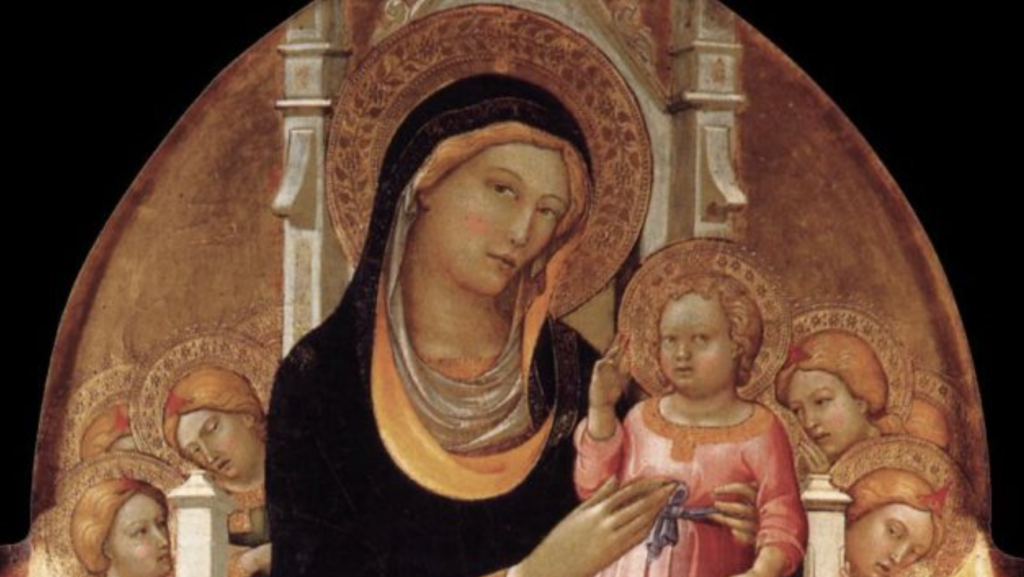May is Mary’s month. Let’s begin it this year by looking at her place in the classic Christian confessions of faith, the Apostles’ Creed and the Nicene Creed.
A creed is a historical record, and so it names names. It calls upon the witness of real historical figures — not only Jesus, but also his mother, Mary, and even the man who condemned Jesus to death, Pontius Pilate.
Pilate is well known from ancient sources. His memory was preserved by his contemporaries, almost always in an unflattering light. So Christians gained nothing by including him in the creed — nothing except a marker for historical accuracy.
With Mary, of course, it’s a different story. She got into the creed by willingly receiving the Word. She conceived, the Apostles’ Creed tells us, “by the power of the Holy Spirit.” Hers was the only human agency involved in Jesus’ conception. Thus, even in the most minimal account of salvation history, she must be named, because salvation turned on her consent.
Mary’s presence in the creed reminds us of our own freedom and dignity. God does not coerce Mary; nor will he ever coerce us. He does not force his will upon her, but rather awaits her yes.
We name Mary in the creed because she is the model of perfect life in covenant with God. Hers is an intelligent obedience and obedient intelligence. She dares to question the angel — not because she doubts him, but because she wants to understand God’s plan.
The first Christians found it necessary to invoke her even in the most abbreviated versions of the story of Jesus. Her presence in the creed was for his sake, but also for theirs.
Every creed that invokes Mary names her with a title: “the Virgin.” Her virginity, indeed, is essential to the story. But its invocation in the creed has even more significance. For in the ancient world, virginity was considered a shameful condition — something to be mourned (see Judges 11:37–38). A woman’s worth was measured by her relationship to a man: her father or her husband or her sons. A virgin was a woman without the support or protection of a man — and so, typically, a person who was vulnerable and impoverished.
With the coming of Christ, such values were turned on their head. Now the poor are blessed, as are the hungry and persecuted (Luke 6:20–22); and now the virgin is called blessed by all generations (Luke 1:48). In the New Covenant, virginity is a condition of honor, not shame (see 1 Corinthians 7), and many have discerned it to be their lifelong vocation.
“The Virgin,” moreover, is known to be the fulfillment of the prophet Isaiah’s oracle: “Behold, a virgin shall conceive and bear a son, and his name shall be called Emmanuel (which means, God with us)” (Matthew 1:23; Isaiah 7:14). Mary’s virginity, foretold in the Old Covenant, becomes an indisputable testimony to Jesus’ status as Messiah.
This small point of traditional devotion will always be an essential part of any authentic Christian confession of faith — an essential part of the creed.

